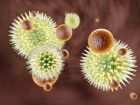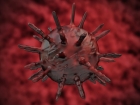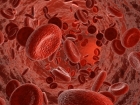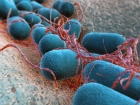Press monitoring
First-of-its-kind preventative breast cancer vaccine begins human trials
29.10.2021 | Press monitoring
After two decades of preclinical research the first phase of human trials are set to begin testing a unique preventative breast cancer vaccine that is designed to target a protein commonly expressed by triple-negative breast cancers. Around 15 percent of all breast cancers are classified as triple-negative breast cancers, so-called because they...
Iron-oxide nanozymes could help fight cavities
27.10.2021 | Press monitoring
For people with particularly cavity-prone teeth, daily brushing and flossing aren't always enough. A new treatment could help, as it uses tiny particles known as nanozymes to break down plaque and kill cavity-causing bacteria. Currently being developed by scientists from the University of Pennsylvania and Indiana University, the experimental...
Mini-Brains The Size of Peas Are Helping Us Study Incurable Neurological Conditions
25.10.2021 | Press monitoring
In the last few years, neuroscientists have gotten much better at growing the beginnings of the human brain in the lab. Now, these 'mini-brains' are growing complex enough for us to study neurological disease in its earliest stages. Maintaining them isn't easy, either. Brain organoids derived from the stem cells of those with Parkinson's...
Can butterfly wings help detect COVID-19 faster?
22.10.2021 | Press monitoring
An international team, led by Swinburne University of Technology and Australian National University (ANU), have made a breakthrough discovery that could potentially lead to faster, more accurate molecular or virus tests, including for COVID-19. The researchers were inspired by how light is concentrated in butterfly wings and have discovered a new...
Wounded cancer cells supercharge immune system to destroy tumors
20.10.2021 | Press monitoring
Immunotherapy is a highly promising branch of cancer treatment that seeks to supercharge the body's natural defenses against cancer. There are many possibilities when it comes to how this can be achieved, but the approach pursued by the MIT scientists behind this new study begins with removing tumor cells from the body and then treating them with...
A new method inspired by kid\'s pop-up books for making 3D artificial tissue
18.10.2021 | Press monitoring
University at Buffalo researchers have developed a new process for creating three-dimensional artificial tissue, an advancement that could improve experimental drug testing, the quality of artificial organs and more. The method is based upon compressive buckling – the structural engineering principle that explains why figures project outward from...
Destructive insects produce high-value products from biowaste
15.10.2021 | Press monitoring
European researchers and industries are putting insects to work – from termites that destroy wooden buildings to insect larvae that are star "poop" composters. Packaging, cosmetics, pharmaceuticals and animal feed are just some of the products they are beetling away to make for us. "In a nutshell, insects are prolific eaters and reproducers...
Anti-aging drug acts as a smart bomb to take out dysfunctional cells
13.10.2021 | Press monitoring
“Senolytics are a new class of drugs with great potential to ameliorate aging," says the University of Leicester's Dr Salvador Macip, study author. “However, the ones we have found so far are quite unspecific and thus may have strong side effects. That is why there is much interest in a second generation of drugs, the targeted senolytics, which...
Harbinger molecules could predict dementia up to 5 years in advance
11.10.2021 | Press monitoring
Earlier detection of dementia could open up far more effective ways to treat and manage the condition, and one place scientists are increasingly turning to for warning signs is the blood. A new study has further broadened the possibilities in this area, pinpointing a set of molecules the authors describe as a "harbinger" of the condition two to...
Living medicine recruits bacteria to fight antibiotic-resistant superbugs
8.10.2021 | Press monitoring
Scientists have demonstrated a new way to fight antibiotic-resistant superbugs by pitting bacteria against each other. The team engineered a common bacteria to safely colonize the surface of medical implants, where it produced enzymes that dissolve superbug biofilms. Staphylococcus aureus (or S. aureus) is a dangerous bacteria that’s increasingly...































